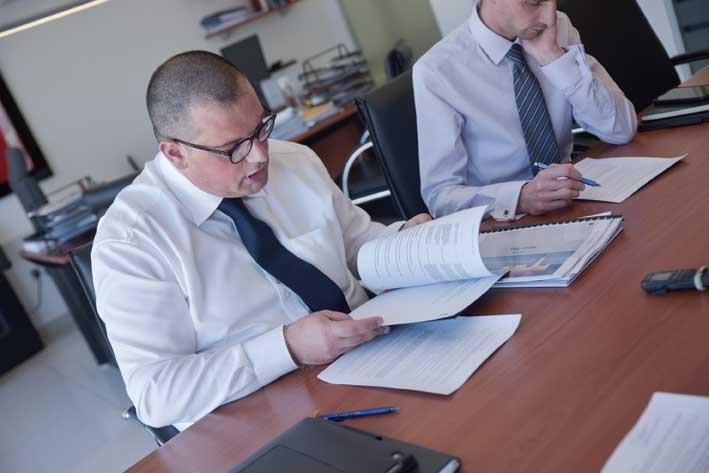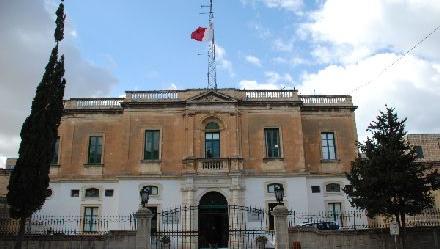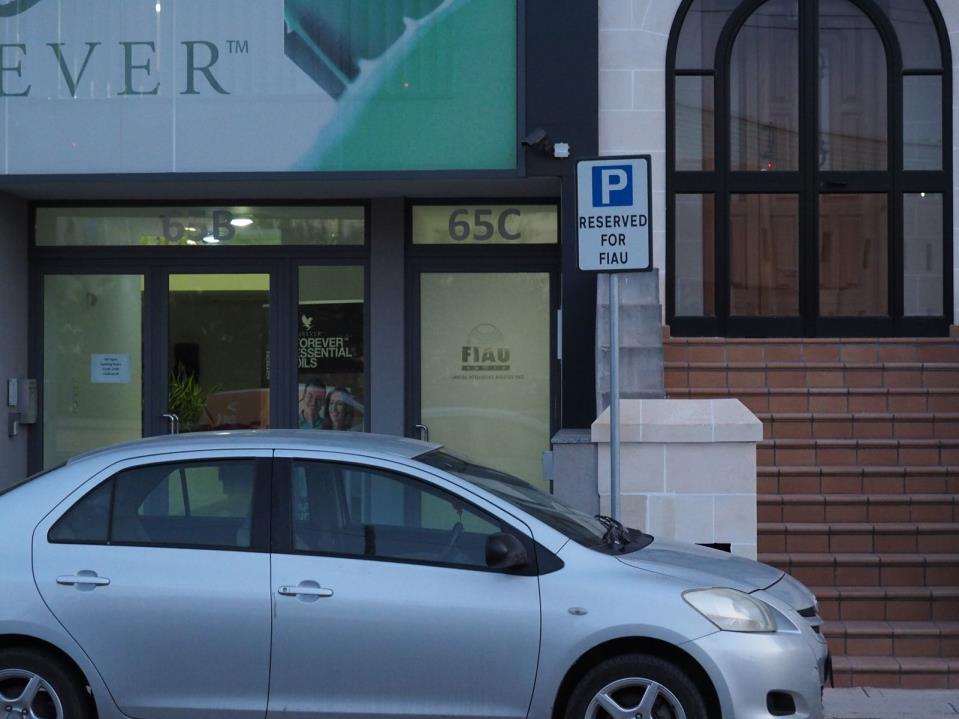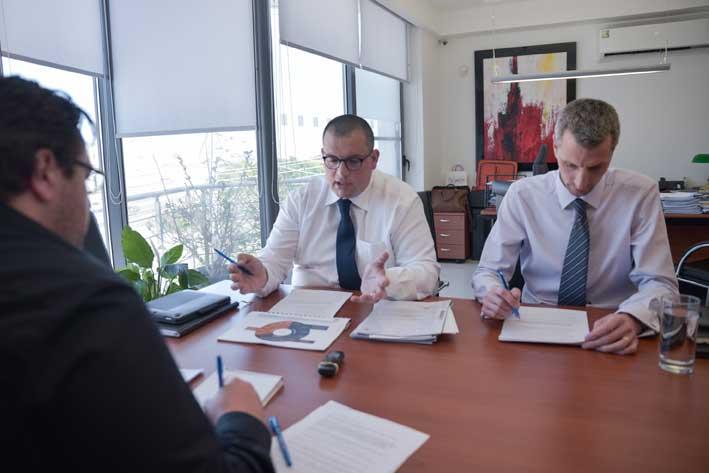The Financial Intelligence Analysis Unit (FIAU) would welcome the introduction of a mechanism to monitor cash transactions, possibly by introducing a maximum cash-transaction threshold, or mandatory reporting of cash transactions over a certain limit, FIAU Director Kenneth Farrugia and Deputy Director Alfred Zammit told The Malta Independent on Sunday in an interview published in today’s issue.
This, they explained, would bolster money-laundering preventative measures in Malta.
Sitting down with The Malta Independent on Sunday, Farrugia and Zammit explained that there is no limit in Malta when it comes to cash transactions, and said that other countries – both in the EU and elsewhere – have similar systems that contribute to anti-money laundering monitoring.
During the interview, the FIAU heads also highlighted the fact that the majority of the actions in the FIAU Action Plan submitted to the European Banking Authority following its 2018 report have been implemented, with just 15 actions not marked off due to them being of a continuous nature.
The FIAU heads, while being unable to speak about any specific reports or investigations because they are not allowed to do so by law, did talk about the situation in the country in general. They expressed their determination to do whatever it takes to fight money-laundering and the financing of terrorists. They explained that the Finance Ministry had also issued a national action plan to implement the national Anti-Money Laundering/Combating the Financing of Terrorism (AML/CFT) Strategy that will help all enforcement and regulatory agencies improve their methodologies.
They also conceded that the number of police prosecutions following FIAU intelligence reports are low, but said that this is also the case in many other countries. “We cannot just blame the police, because the whole system needs to be looked at, including the police, the judicial process and even ourselves, hence the national action plan,” they said.
The FIAU heads also spoke about the need for a change in mentality among financial services providers in the private sector, and the need for them to make anti-money-laundering measures a priority, rather than just looking at them as an added expense.

What actions have been implemented to tackle the European Banking Authority (EBA) and European Commission (EC) recommendations and is there still ongoing communication?
Kenneth Farrugia: We received the EBA’s recommendations in July 2018 and in November that year we received the European Commission’s opinion that was based on the EBA’s recommendations. We already had an action plan which we had worked on before these reports and this was then enhanced, following the recommendations of the EBA.
The action plan had 138 action points with clear implementation deadlines. The Commission wanted the timeline moved forward and it was moved from June 2019 to March 2019. Other than that, however, both the EBA and the Commission were satisfied with the plan.
We overhauled our entire supervision system, including the methodology for conducting risk assessments and the creation of a new overarching supervisory strategy to deploy effective, risk-based supervision. We also revamped our supervision methodology in terms of policies and procedures. We worked on governance, enforcement and follow-up, and on a new sanctioning policy which has been crossed-checked and aligned with international best practices. The majority of actions have already been implemented, but there are 15 which cannot be concluded as they are of a continuous nature, such as outreach and guidance for subject persons. We are determined to do what it takes in order to ensure quality and effectiveness as the sole Anti-Money Laundering/Combating the Financing of Terrorism (AML/CFT) supervisor in Malta.

Over the years, the FIAU has received quite a bit of flak over a lack of action on high-profile cases. Is this the FIAU’s fault?
Alfred Zammit: I believe that in many of cases where the FIAU received flak, it was unfair and unjustified.
The only area where the FIAU had certain issues was on supervision, and this not out of unwillingness but primarily due to lack of resources. This shortcoming was acknowledged and action was taken to improve it. When it comes to any other work done by the FIAU, a lot of the flak was unjustified and mostly the result of a lack of information, or mis-information, combined with other factors.
For example, we could have handled the media in a better way as the Unit is not geared to handle a lot of press. We – and most of the FIAU staff – are very technical people, so we focus on our work according to our functions at law and do it in the best way possible, often ignoring media-related aspects.
Other factors also contributed to the flack. Confidential, and even secret, information, which is not meant to be in the public domain, was leaked which, in itself, was a criminal offence and it should have never been leaked in the first place.
When such information is leaked, a lot of people mis-use it for whatever reasons, including those that are politically motivated. The leaking of confidential or secret information, particularly if it is not conclusive, as is the case with most intelligence, not only prejudices investigatory work but may cause undue damage to individuals or entities and also constitute a security and personal safety risk to analysts and investigators.
The FIAU was quick to learn lessons and implement changes, even before we were approached by the EBA and the Commission. When we see something not working well, we take action to try and remedy the situation and improve our work. Immediately after the Pilatus case we learnt a number of lessons and began applying what we had learnt in different situations. For example, we carried out more unannounced visits, lifted data systems and improved our own processes and procedures, including the keeping of records of our actions among others, and several of these improvements were made after the Pilatus case and before the Commission became involved.
Kenneth Farrugia: Sometimes the reality inside the FIAU is far different from that perceived externally. But this may be quite difficult to convey to the public for various reasons, including confidentiality obligations emanating from the applicable laws. Once we received the EBA recommendations, we worked as a team to implement the necessary changes in the shortest time-frame possible.
We want to be a reference point for subject persons, and a country cannot have a supervisory authority that is not up to standard. We acknowledge that we were not perfect, but for sure we were not in the bad state of affairs that the media and politicians tried to portray, and we have certainly not been hijacked or ever acted in bad faith.
Yes, there was room for improvement, but with the establishment of clear deadlines with the EBA and the Commission, and thanks to the FIAU’s motivated and passionate staff, we managed to implement the necessary changes. The EBA and European Commission were constantly monitoring us and we delivered, and have now built an excellent working relationship with the two European bodies.
In the past 18 months, we have already managed to achieve quite a few results by issuing a record number of guidance papers to entities in Malta and by way of various enforcement actions taken by the FIAU, including a record number of pecuniary fines. Consequently, the feeling of increased quality supervision is already being felt and this is due to more robust risk assessment, more in-depth reviews and closer collaboration between Maltese Authorities such as the MFSA and MGA. We are targeting high-risk subject persons first and foremost, and there is an array of actions being taken that are yielding results on various fronts.

One of the main issues reported in the media was that the reports made by the FIAU were not being followed up, primarily by the police and other authorities. Is this an issue for you?
Kenneth Farrugia: We are concerned, but this is not a case for the FIAU, it is a national level issue. Last year, the Finance Ministry issued a national AML/CFT strategy and a detailed action plan. This plan clearly deals with actions that need to be implemented by various authorities, including the FIAU, the Police, the Asset Recovery Bureau, the MFSA, the Registry for Companies and others, to increase effectiveness.
On the FIAU side, we are implementing the actions and we understand other authorities are doing the same. The action plan is not just a cosmetic document, but was drafted because Malta’s National ML/TF Risk Assessment, a process which began way back in 2013 and had never been undertaken before, identified several areas that required improvements. One of the recent actions taken by Malta was the setting up of the AML/CFT National Coordinating Committee, which has various functions, including that of monitoring the progress being made with regard to implementing this action plan.
The FIAU is working to improve on various fronts, including quality and efficiency. We are investing in human and IT resources and are restructuring our analytical team to ensure specialisation in operational analysis, terrorism financing, in-depth analysis and strategic analysis to better identify trends and typologies. We aim to deliver results more efficiently and of a better quality. These actions clearly show that we are committed to seriously improving the entire system.
Our reports are sent to the police, who are responsible for investigating and prosecuting if they obtain the necessary evidence. There is a need for improvement in this area as well, and also in the judicial process. The Asset Recovery Bureau (ARB) is now functioning and assets need to be traced and confiscated through the ARB. The National action plan envisages improvement points for all authorities involved in the combat of ML/FT which should yield better results, even in the short term.

But is there enough coordination between the FIAU and the police? The general belief is that if the FIAU passes on reports, the police just shelve them...
Alfred Zammit: If you look at the statistics relating to this matter, it is clearly an area of concern. Around 10 per cent of the reports received by the FIAU result in an analytical report being sent to the police for criminal investigation after the FIAU’s analytical work is concluded. Unfortunately, the number of reports sent to the Police that lead to a prosecution is really low, and the number of prosecutions resulting in convictions is also low.
If you see what the FIAU sends to the police and what results in a conviction, there is nothing to write home about. The conversion rates are really low, and it is an issue that is affecting a lot of countries, not just Malta. However, this is no excuse and although we cannot just blame the Malta police or whoever, the whole system needs to be looked at carefully, including the police, the judicial process and even ourselves – hence the Finance Ministry’s action plan to implement the National AML/CFT Strategy.
Kenneth Farrugia: The action plan deals with, amongst other things, improving investigation and prosecution. It seeks to address the shortcomings of the whole system.

I understand that there is no capping on the amount involved in cash transactions. Do we need this?
Alfred Zammit: There is no upper-limit on cash transactions and no cash restrictions under Maltese law. What we need is that if a person deposits a large amount of cash that is not in line with that person’s profile, the bank should investigate.
For example, if someone owns a supermarket then it would be normal for daily cash deposits of a certain amount. But if I, as an employee of the supermarket, were to deposit a large amount of cash, that would be unusual, so a bank would be expected to pick that up and ask questions to determine if there is a suspicion of money-laundering.
A number of countries in the EU have introduced cash limitations and the FIAU has done extensive research on this. However, it is not the only option. It is easy to place a limit in the law, but one would need to see how to enforce it and that becomes a problem in itself. Other countries, even where they have no limit in place, have another system revolving around cash-transaction reports. Here, the FIAUs not only receive reports of suspicious transactions, but also receive reports of cash transactions over a certain amount.
So if someone deposits €20,000 in cash in a bank, then the bank would need to report it – even if it is not a suspicious transaction. There are different options and, given that our role is to combat money-laundering and the financing of terrorism, we would welcome any measure that either restricts, or at least helps us monitor, major cash transactions. Whatever solution is adopted, it requires considerable thought and must be physically implementable.

What are the challenges the FIAU faces today?
Kenneth Farrugia: One of the biggest challenges is that of engaging human resources with the right skills and experience. There is a great deal of competition between the authorities and the private sector, in terms of both attracting expertise and retaining it. We are doing our best, and we need to offer the best environment and conditions possible.
Another challenge is the continuing need to adapt and change. We have changed a lot in the past months, and we are again testing and reviewing how policies and procedures actually work on the ground. Training is key to understanding and employing the necessary changes in order to understand how criminals work and to identify non-compliance with AML/CFT obligations.
To ensure the latter, we need to provide training on an ongoing basis and be able to recruit specialised talent. We have the full support of the Ministry of Finance, and our budget has increased from the €1 million or less we used to have to €5 million for 2019, and we have already requested additional funding. We plan to pursue the investment in human resources because they are key to our success.
Alfred Zammit: Another issue is the challenge of implementing AML/CFT preventative measures, including by subject persons. To prevent money-laundering or terrorist financing taking place in Malta, subject persons need to have very good systems in place to prevent their companies being used by criminals.
Why do cases slip through the net? AML/CFT systems and the compliance culture need to improve in Malta. Very often this is seen as just a cost and a burden that yields no benefits. Some operators see it as having to employ people just to carry out customer due diligence and conduct checks which does not result in any financial gain to their company.
Unfortunately, AML/CFT and risk management is all too often not high on the agenda. There are some who make it a priority, and we would like to see more of that. However, we see the need for improvement and the FIAU will be working jointly with the authorities, the private sector and representative bodies to improve Malta’s AML/CFT compliance culture.
We carry out compliance visits and at times find no – or not enough – resources dedicated to AML/CFT. One of our goals when carrying out visits is to understand an entity’s level of compliance and, if there are failures, to ascertain what contributed to such failures. Sometimes, it is a lack of understanding, even though an entity may have taken several AML/CFT initiatives (which is a mitigating factor considered by the FIAU when determining what administrative action to take). In other cases, however, it may boil down to a complete lack of willingness to invest and implement effective AML/CFT processes. In the latter, our mantra is ‘if you think compliance is expensive, try non-compliance’. This is already evident through the sanctions we have issued recently. In line with the most recent regulations to transpose the EU Directive, sanctions of up to €5 million per breach can be issued on a financial entity. This is, of course, only the financial cost, because administrative penalties – once finalised and due – are published they may lead to other unfavourable consequences for a sanctioned entity.
Kenneth Farrugia: Having a licence to provide financial services, gaming or any other relevant activity is a privilege, not a right, and is subject to a number of conditions, including the duty of compliance. There are instances where this is not understood and there are financial and other economic operators which, at times, disregard their obligations at law and the requirements imposed by their regulatory authorities.
This has to change, which is why we need to build and invest in our systems and engage to an even greater extent with the various sectors involved in order to improve AML/CFT controls and compliance.